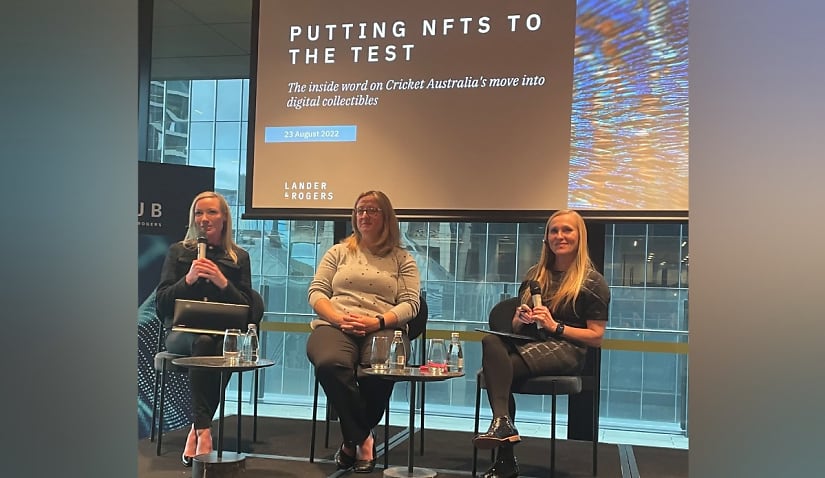Lander & Rogers hosted an event to give an exclusive look into how one of Australia’s biggest sporting bodies, Cricket Australia, is launching into the metaverse with the release of its non-fungible tokens (NFTs).

The event, hosted in its Melbourne office, held a discussion about the first foray into NFTs by cricket’s national governing body.
This timely conversation was hosted as part of Lander & Rogers’ beVital technology and innovation education series, following the federal government’s announcement of an enhanced commitment to reviewing and developing regulatory frameworks around crypto assets in Australia.
Set to launch later this year, Cricket Australia’s NFT collection will allow cricket fans to purchase and trade magic moments from the sport.
The collection will also enable users to tap into a “community-driven sports metaverse”, with access to additional experiences and products to drive connection between players and fans.
“It allows fans to ‘own’ a slice of cricket, harnessing that emotional connection that they have either with the team or with the player,” said Dr Norton.
“We have some really amazing moments in our archive that really hit home — either your favourite highlight or the first match you went to with your mum or dad.”
According to Dr Norton, “NFTs have been a digital catalyst for the way that we can trade and sell information.
“We’ve seen a huge movement in the last two years of sports, artists, musicians, and influencers being able to monetise their digital goods by putting them on blockchain.”
Dr Norton highlighted the US$69 million sale of a Beeple NFT, which brought these new assets to the mainstream, giving validity to the idea that consumers are willing to attach value to NFTs.
NFT sales across the globe were approximately at $647.23 million for the month of July, according to Be[In] Crypto research.
Dr Norton predicted that blockchain would underpin a large part of computing technology in the next five to 10 years as adoption is embraced.
Ms Fitzgerald noted that sport organisations and fashion brands were among the leaders in employing NFTs and the metaverse to better engage with fans and consumers.
Speaking about the complexities of launching an NFT collection like Cricket Australia’s, Ms Fitzgerald noted that it is important to pay attention to the legal framework that underpins this burgeoning economy.
She described blockchain as a “new digital language” that requires a degree of blockchain literacy and highlighted the need to understand the existing regulatory landscape.
“For creative NFTs, there are two common issues — the consumer’s understanding of what they’re buying; and the intellectual property rights of owners and how they can protect themselves against any infringements,” said Ms Fitzgerald.
“These issues do need to be solved and thought through very carefully. Meticulous planning and consideration of all stakeholders will help deliver the most successful NFT use cases.”
Dr Norton agreed that educating stakeholders and the public has been a key part of Cricket Australia’s procurement and development process.
“We’re making sure people understand what we’re doing, and why we’re doing it,” she said.
Ms Fitzgerald referred to the recent announcement by the government that it would prioritise token mapping as part of its crypto-asset reforms, which she believes “will include a classification of types of NFT and then a mapping to the appropriate sort of regulation, whether it currently exists or whether it might need to”, as an important next step in regulating the crypto-asset sector for the benefit of consumers.
In anticipation of the digital collectibles launch later this year, when asked if she would undergo another NFT project at Cricket Australia, Dr Norton said: “Absolutely.
“To bring something from a tiny idea to what is hopefully going to be a product that people can get out there and interact with, is really a fascinating thing.”